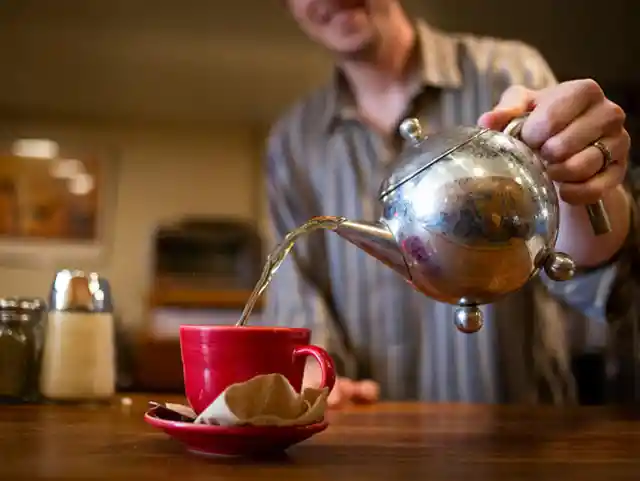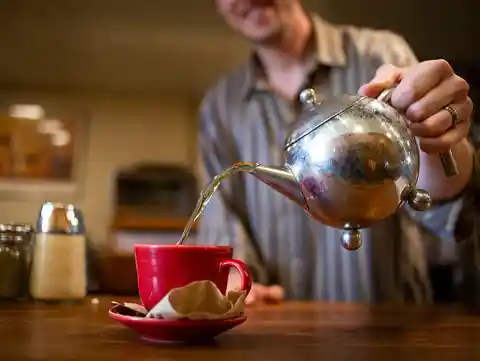



In a world of convenience and satisfaction, it’s easy for people to resort to readily available things without thinking about consequences. This is the reason why we’re now exposed to a cornucopia of junk food, fatty dishes, and empty beverages. Fortunately, the dependable tea has remained in popularity among millions of people. In fact, a National Geographic article cited tea as the beverage with the most number of drinkers in the world (apart from water, of course). This may be due to billions of tea drinkers in China and India, but this nature-inspired beverage has also taken the U.S. by storm because of its health advantages. The popularity of tea has gotten so high that we’re now treated to a lot of options. Nowadays, when you visit your favorite tea place, you’ll probably be presented with so many new tea variants. If you’re curious about the different kinds of tea and how they can improve our health, you’ve come to the right place!
Black Tea
Judging by its name alone, black tea looks a bit like coffee, and it also contains caffeine. In fact, WebMD said that it “has the highest caffeine content and forms the basis for flavored teas like chai, along with some instant teas.” Its health benefits include protection of the lungs from cigarette smoke exposure, as well as reduction of stroke risk.Green Tea
This kind of tea owes its name to its source: steamed tea leaves. Its antioxidant properties come in the form of a polyphenol called epigallocatechin gallate (EGCG), which has been known to reduce growth of certain cancers, loosen artery clogs, and help burn fat more efficiently.Matcha Tea
At first glance, its moldy green color might put off some traditional tea drinkers. However, this healthier version of the conventional green tea comes from “steamed and dried green tea leaves that has a long history in Japanese tea ceremonies,” according to this article. EGCG is present in matcha tea roughly ten times more than in a regular China Green Tips tea serving. Polyphenols and other types of antioxidants help in fighting cancer and boosting immunity. In addition, matcha tea is also known for its stimulant and metabolism-enhancing properties.Oolong Tea
No, it’s not named after its effect on longevity of human life. Rather, oolong tea hails from Chinese tradition with a unique process of making the beverage. Its health benefits include reduction of bad cholesterol (or LDL) levels, improved mental alertness, and better skin condition, among others.Pu-erh Tea
This kind of tea looks similar to black tea, but comes from fermented and aged tea leaves that are pressed into a cake-life form. Pu-erh tea has a Chinese origin, particularly in the Yunnan province. Some studies discovered that pu-erh tea has positive effects on weight management, cholesterol level, and liver condition.Herbal Tea
This kind of tea contains a subcategory of other popular teas. All of the teas under this kind come from herbs, roots, or seeds that are steeped in hot water. Some of its popular variants include the following:- Chamomile tea: It lowers complications associated with diabetes.
- Hibiscus tea: This is popular for people who want their blood pressure regulated.
- Echinacea tea: Although studies need to be conducted to support this, this kind of tea is popular because of its preventive effects against the common cold.
In a world of convenience and satisfaction, it’s easy for people to resort to readily available things without thinking about consequences. This is the reason why we’re now exposed to a cornucopia of junk food, fatty dishes, and empty beverages. Fortunately, the dependable tea has remained in popularity among millions of people. In fact, a National Geographic article cited tea as the beverage with the most number of drinkers in the world (apart from water, of course). This may be due to billions of tea drinkers in China and India, but this nature-inspired beverage has also taken the U.S. by storm because of its health advantages. The popularity of tea has gotten so high that we’re now treated to a lot of options. Nowadays, when you visit your favorite tea place, you’ll probably be presented with so many new tea variants. If you’re curious about the different kinds of tea and how they can improve our health, you’ve come to the right place!
Black Tea
Judging by its name alone, black tea looks a bit like coffee, and it also contains caffeine. In fact, WebMD said that it “has the highest caffeine content and forms the basis for flavored teas like chai, along with some instant teas.” Its health benefits include protection of the lungs from cigarette smoke exposure, as well as reduction of stroke risk.Green Tea
This kind of tea owes its name to its source: steamed tea leaves. Its antioxidant properties come in the form of a polyphenol called epigallocatechin gallate (EGCG), which has been known to reduce growth of certain cancers, loosen artery clogs, and help burn fat more efficiently.Matcha Tea
At first glance, its moldy green color might put off some traditional tea drinkers. However, this healthier version of the conventional green tea comes from “steamed and dried green tea leaves that has a long history in Japanese tea ceremonies,” according to this article. EGCG is present in matcha tea roughly ten times more than in a regular China Green Tips tea serving. Polyphenols and other types of antioxidants help in fighting cancer and boosting immunity. In addition, matcha tea is also known for its stimulant and metabolism-enhancing properties.Oolong Tea
No, it’s not named after its effect on longevity of human life. Rather, oolong tea hails from Chinese tradition with a unique process of making the beverage. Its health benefits include reduction of bad cholesterol (or LDL) levels, improved mental alertness, and better skin condition, among others.Pu-erh Tea
This kind of tea looks similar to black tea, but comes from fermented and aged tea leaves that are pressed into a cake-life form. Pu-erh tea has a Chinese origin, particularly in the Yunnan province. Some studies discovered that pu-erh tea has positive effects on weight management, cholesterol level, and liver condition.Herbal Tea
This kind of tea contains a subcategory of other popular teas. All of the teas under this kind come from herbs, roots, or seeds that are steeped in hot water. Some of its popular variants include the following:- Chamomile tea: It lowers complications associated with diabetes.
- Hibiscus tea: This is popular for people who want their blood pressure regulated.
- Echinacea tea: Although studies need to be conducted to support this, this kind of tea is popular because of its preventive effects against the common cold.